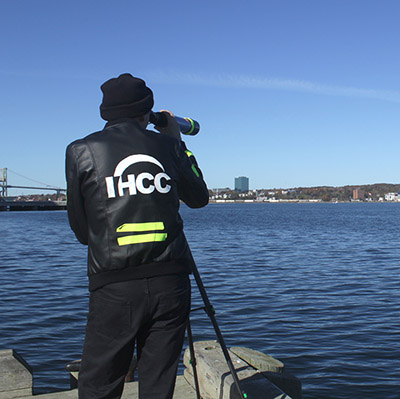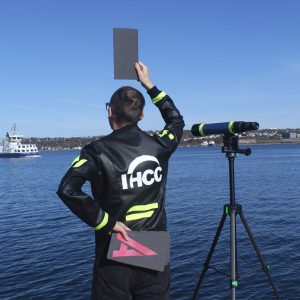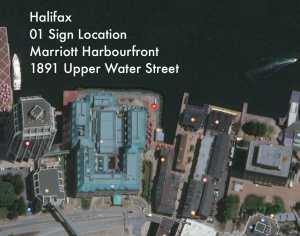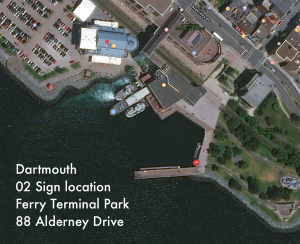Collaboration between Ben and Sarah Mosher
Nocturne 2017
“Inter-Harbour Communication Company” connects to a fragment of our partially forgotten heritage; Nova Scotia was home to one of the largest early high-speed communication networks in the world. Visual telegraphy allowed messages to be delivered at speeds unimaginable in a world of letters and post, taking hours not days to reach their destination. By reenacting the methods of these early messaging systems, this project playfully subverts their colonial roots and allows public participation in a communication system built on the foundation of British military communication methods.
In 1795, under the direction of British commander Edward Duke of Kent, troops were made to construct a communication network in our province. The nature of this network was a line of signalling towers using a fiercely-guarded coded language of flags and balls on masts. The extent of the network was one of the largest visual semaphore networks in the world, stretching from Sambro Island to Fredricton. Kent’s vision for his visual telegraph network was for it to allow him to relay messages to Quebec City without his need to leave Halifax. This convoluted and costly venture only remained viable for a few years before being discontinued at large with The Duke of Kent’s departure from Halifax in the early 1800’s.
This system also allowed for inter-harbour communication between commercial and military groups. “Inter-Harbour Communication Company” allows the opening of inter-harbour communications through the use of visual signs and rudimentary phone lines. This playful engagement with communication methods portends a possibility for the distortion and allows an openness of lines of dialogue between the two sides of the harbour.





